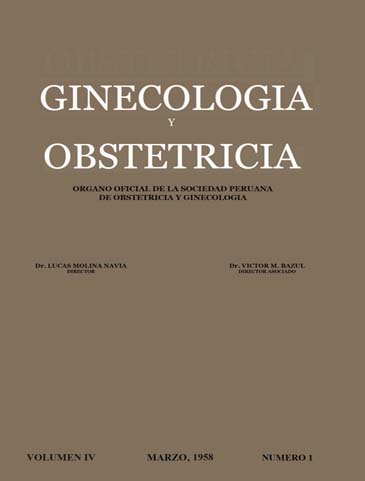The surface of the human vagina mucification
DOI:
https://doi.org/10.31403/rpgo.v4i1167Abstract
The existence of a surface mucification in the vaginal epithelium is shown. This mucification is, therefore, parallel to that observed in some animals. This motivates surface mucification sloughed cells in the vagina are primarily cells containing mucin, particularly in the second half of intermenstruo. The polysaccharide of demonstrable both in extended cuts as surface cells of the vagina, is not therefore, as believed, glycogen, but this other substance. Glycogen exist in the vagina, but is deposited in deeper cells, so it is not expected that high karyopyknotic smear level, contain high amounts of glycogen; It is on the contrary when the estrogen level begins to drop, when the peeling glucogenic content is higher. The significance of these findings in the pathophysiology and interpretation of smears, should be underlined.Downloads
Download data is not yet available.
Downloads
Published
2015-07-02
How to Cite
Nogales, F., Montalvo, L., & Botella, J. (2015). The surface of the human vagina mucification. The Peruvian Journal of Gynecology and Obstetrics, 4(1), 47–54. https://doi.org/10.31403/rpgo.v4i1167
Issue
Section
Artículos Originales
















